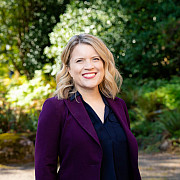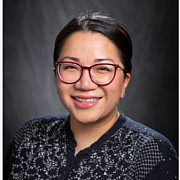- <a href="/live/image/gid/49/width/650/103406_spsy-group-at-table_1.jpg" class="lw_preview_image lw_disable_preview" tabindex="-1"><picture class="lw_image lw_image103406"><source media="(max-width: 500px)" type="image/webp" srcset="/live/image/scale/2x/gid/49/width/500/height/479/crop/1/103406_spsy-group-at-table_1.rev.1713304619.webp 2x, /live/image/scale/3x/gid/49/width/500/height/479/crop/1/103406_spsy-group-at-table_1.rev.1713304619.webp 3x" data-origin="responsive"/><source media="(max-width: 500px)" type="image/jpeg" srcset="/live/image/scale/2x/gid/49/width/500/height/479/crop/1/103406_spsy-group-at-table_1.rev.1713304619.jpg 2x, /live/image/scale/3x/gid/49/width/500/height/479/crop/1/103406_spsy-group-at-table_1.rev.1713304619.jpg 3x" data-origin="responsive"/><source media="(min-width: 501px)" type="image/webp" srcset="/live/image/scale/2x/gid/49/width/720/height/690/crop/1/103406_spsy-group-at-table_1.rev.1713304619.webp 2x, /live/image/scale/3x/gid/49/width/720/height/690/crop/1/103406_spsy-group-at-table_1.rev.1713304619.webp 3x" data-origin="responsive"/><source media="(min-width: 501px)" type="image/jpeg" srcset="/live/image/scale/2x/gid/49/width/720/height/690/crop/1/103406_spsy-group-at-table_1.rev.1713304619.jpg 2x, /live/image/scale/3x/gid/49/width/720/height/690/crop/1/103406_spsy-group-at-table_1.rev.1713304619.jpg 3x" data-origin="responsive"/><img src="/live/image/gid/49/width/720/height/690/crop/1/103406_spsy-group-at-table_1.rev.1713304619.jpg" alt="A school psychologist sits at a table with elementary students working on an assignment." width="720" height="690" srcset="/live/image/scale/2x/gid/49/width/720/height/690/crop/1/103406_spsy-group-at-table_1.rev.1713304619.jpg 2x, /live/image/scale/3x/gid/49/width/720/height/690/crop/1/103406_spsy-group-at-table_1.rev.1713304619.jpg 3x" data-max-w="3200" data-max-h="2133" loading="lazy" data-optimized="true"/></picture></a> <div class="hero-split_image_caption collapsable-caption"></div>
School Psychology
School psychologists provide essential support services for students, teachers, families, administrators and other professionals to address the needs of children—social, emotional, and cognitive. Their primary goal of school psychologists is to help children flourish in schools, at home, and in life.
Become a School Psychologist at Lewis & Clark
At Lewis & Clark, students benefit from rigorous training that takes place in the heart of the thriving Portland Metro area. And, because we offer the only School Psychology EdS degree program in Oregon with national accreditation from the National Association of School Psychologists (NASP), graduates are able to find work both inside and outside of the state. No GRE required.

Program Overview
Degree earned: Educational Specialist (EdS)
Total credit hours: 64
Program length: Three years, minimum (full or part-time study available)
Program start: Fall only
Program director: Elena L. Diamond →
Options:
School Psychology Hybrid Track →
About Our Program
In our nationally-accredited program, we emphasize the development of a deep understanding of children, families and schools as well as the development of effective relational and communication skills. Through coursework and practica in counseling, consultation, assessment, and intervention, our students learn to work effectively with individual children, whole families, special education teams, as well as whole school communities to help create learning environments that foster the healthy development of all children.
This specialist degree-level program is designed for students seeking licensure as school psychologists. The EdS degree demands a level of preparation significantly greater than that called for by a master’s degree. The EdS is widely regarded as the intermediary degree between a master’s and a PhD Program completion requires a minimum of three years (including coursework in fall, spring, and summer semesters). The third year of the program is a full-time internship in a public school setting with on-campus supervision.
- Program Annual Report and Student Outcomes Data
- Admissions Requirements and Deadlines
- Attend an Info Session
- Request Information
Featured News
McKenzie Darr, EdS School Psychology ’21, Named Oregon School Psychologist of the Year
Now in her fourth year with the Dallas School District, Darr is one of two school psychologists serving students at Whitworth and Oakdale Heights elementary schools, Dallas Community Charter School, and Dallas High School. Last year she served 86 students through the evaluation process and 90 students the year prior.
School Psychology Hybrid Track
Designed to increase access to Lewis & Clark’s School Psychology Program, the School Psychology Hybrid Track provides educational opportunities to individuals living and working in rural communities across Oregon who plan to serve rural schools in their work as future school psychologists. Hybrid Track classes will primarily be held online, with students expected to come to the Lewis & Clark campus in Portland at the start of the program for an in-person orientation and approximately once each term for in-person coursework.
In order to be eligible for the Hybrid Track, applicants must live or work in rural communities where access to in-person training programs is not available and must confirm there is a school psychologist in their local school district/ESD who can serve as their fieldwork supervisor. The program will assist with this processLearn More About the Hybrid Track
School Psychology Multilingual Culturally Responsible Certificate Program
The School Psychology program has added an innovative, 8-credit, Multilingual Culturally Responsible Certificate program to the course offerings. This certificate is designed to provide advanced training in culturally responsible and inclusive practices for school psychologists to best serve and support culturally and linguistically diverse students in school settings. The certificate will include coursework related to foundations in multilingual education and culturally responsible practices related to assessments, consultation, counseling, and direct intervention. In addition to the didactic coursework, students will enroll in a seminar course where they will receive supervision and case consultation support and will compile a portfolio to showcase their knowledge and skills related to supporting multicultural and multilingual students in schools. All classes will be online making the certificate accessible for students in both the traditional on-campus track and the hybrid track of the School Psychology program.
Scholarship Opportunities
The School Psychology program offers significant scholarship opportunities to candidates interested in pursuing their Multilingual Culturally Responsible Certificate along with their School Psychology EdS degree through grant-funded Project AMPLIFY. Culturally, racially, and linguistically diverse candidates are encouraged and invited to apply.
Learn More About the Certificate Learn More About Project AMPLIFY
Program Faculty
Jennifer Twyford
About the Profession
School psychologists provide essential support services for students, teachers, families, administrators and other professionals to address the needs of children—social, emotional, and cognitive.
They possess not only an in-depth understanding of children, families and schools, but also a highly-developed set of relational and communication skills. In this way, school psychologists are able to see and understand children in rich and comprehensive ways—through observation, consultation, data collection and assessment—and share those understandings in helpful ways to parents, teachers, and other school personnel. The primary goal of school psychologists is to help children flourish in schools, at home, and in life.
The National Association of School Psychologists (NASP) has provided helpful information about the profession of School Psychology, what the job is like, and how the profession compares to other related professions, such as school counseling.
The website answers questions about the profession, including:
FAQs
Yes. Our graduate admissions office offers appointments with an admissions counselor as well as admissions-led info sessions year round. The School Psychology Program offers faculty-led info sessions at limited times throughout the year. All upcoming dates are published on the graduate admissions website.
If you have a specific question about the program, please email Elena Lilles Diamond, program director, at ediamond@lclark.edu.

When I found the educational specialist program at Lewis & Clark, I immediately identified with its mission. Lewis & Clark’s focus on social justice makes the application process accessible, and the level of support the program has provided has made me feel confident to step into the education field to serve students and families.
When I found the educational specialist program at Lewis & Clark, I immediately identified with its mission. Lewis & Clark’s focus on social justice makes the application process accessible, and the level of support the program has provided has made me feel confident to step into the education field to serve students and families.
Learn More
- Forms, Evaluations and Handbooks
- Admissions Requirements and Deadlines
- Required Tests for Program Completion
Resources for School Psychology Students
Advising and Contact Information
- Program Director
Elena Lilles Diamond, PhD - Clinical Coordinator
Elena Lilles Diamond, PhD - Program Faculty
Jennifer Twyford, PhD
Next Steps
Accreditation
This program is accredited by the Council for the Accreditation of Educator Preparation (CAEP), the National Association of School Psychologists (NASP), and the Oregon Teacher Standards and Practices Commission (TSPC). Because of our NASP accreditation, graduates are able to apply for the National Certificate of School Psychology (NCSP) which enables graduates to apply for licensure in many states.
Counseling, Therapy, and School Psychology is located in room 326 of Rogers Hall on the Graduate Campus.
MSC: 86
email ctsp@lclark.edu
voice 503-768-6060
fax 503-768-6065
Chair Cort Dorn-Medeiros
Counseling, Therapy, and School Psychology
Lewis & Clark
615 S. Palatine Hill Road
Portland OR 97219











